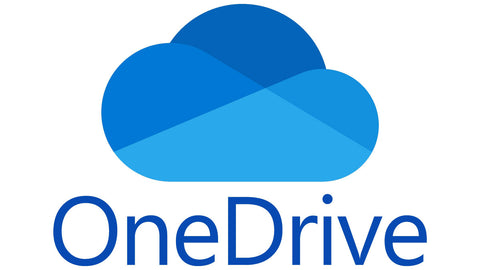Comparison
Storage Capacity
When it comes to cloud storage, storage capacity is one of the most significant factors that people usually consider. Dropbox, Google Drive, and OneDrive all offer different storage capacities.
Dropbox provides only 2GB of free storage capacity to its users, while Google Drive offers 15GB and OneDrive provides 5GB. However, if you want more space, you can pay for additional capacity in all three services.
Google Drive offers the most affordable option for additional storage with a price of $1.99 per month for an extra 100 GB of space.
Meanwhile, Dropbox charges $9.99 per month for an extra 1TB of space and OneDrive offers a range of plans starting at $1.99 per month for an extra 100GB up to $9.99 per month for an additional TB.
File Size Limitations
The file size limitation in cloud storage services matters if you have large files or videos that need to be uploaded or shared with others frequently. Dropbox allows you to upload files up to a size limit of 50GB, which is much larger than Google Drive's maximum file size limit of just 5TB and OneDrive's limit of just 100MB.
Syncing Capabilities
Syncing capabilities are essential if you work on multiple devices or collaborate with others frequently on shared documents online. All three services offer syncing capabilities but differ in terms of how they sync files across devices.
Dropbox and OneDrive use a selective sync feature where users can select which folders they want to sync across their devices while Google Drive automatically syncs everything in your Google account unless specifically turned off by the user.
Security Measures
Security measures are essential when it comes to storing your data online, especially if it contains sensitive information. All three services offer two-factor authentication to prevent unauthorized access.
However, Google Drive and Dropbox offer additional security features such as encryption of files in transit and at rest, while OneDrive only encrypts files during transmission.
Sharing options
Sharing options are essential when it comes to collaborating with others on documents online. All three services allow users to share files with others through links or email invites, but the level of control over shared links varies.
Dropbox allows users to set passwords and expiration dates for shared links, while Google Drive allows users to choose who can view or edit their shared documents. OneDrive offers controls over how links are shared but doesn't provide as many customization options compared to Dropbox and Google Drive.
Mobile App Functionality
Mobile app functionality is essential if you need access to your files on the go from your smartphone or tablet. All three services offer mobile apps with varying degrees of functionality.
Dropbox provides a user-friendly interface that allows you to view, download and upload files quickly on mobile devices.
Meanwhile, Google Drive's mobile app is mostly geared towards viewing documents rather than editing them, which is something that can be done more efficiently on a desktop computer.
OneDrive provides easy access to all your synced files but has limited editing capabilities directly from the mobile app interface.
Conclusion
When it comes down to choosing between Dropbox, Google Drive or OneDrive as your preferred cloud storage service provider it all depends on individual needs.
If you require large file storage capacity or an affordable option for extra storage then Google Drive may be the way forward for you.
If security features are important then Dropbox may be a better choice due to its high-level encryption capabilities both in transit and at rest.
If you’re looking for collaboration capabilities with others then both Dropbox and Google drive provide excellent options for sharing control settings within their apps.
If mobile app functionality is a priority, Dropbox once again edges ahead of OneDrive and Google Drive due to its user-friendly interface specifically designed for smartphones and tablets.
Ultimately, choosing the best cloud storage service provider is a decision that should be based on your specific requirements.















